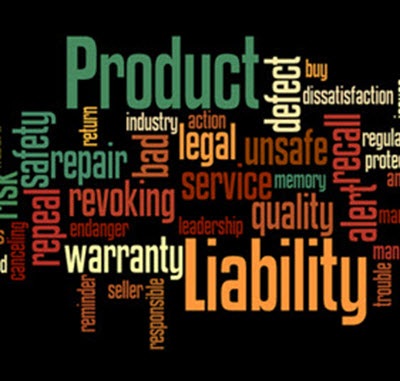As a consumer, you expect the products you purchase will work as intended and be safe. However, products that are poorly designed and dangerous make it to the market more often than you might realize. That can leave unsuspecting victims with injuries. Some people may even pass away from their injuries. If a defective product injured you or a loved one, you have a legal right to bring a claim. However, pursuing these types of claims is very complicated. That is why you need an experienced product liability lawyer on your side.
Understandably, prospective clients have numerous questions about how product liability claims work. To help get you prepared for your initial consultation, we’ve prepared answers to a few of the most common questions we get concerning pursuing a defective product claim.
How Do You Establish Liability in a Defective Product Case?
There are four possible ways of establishing liability in a defective product case. These are negligence, misrepresentation, breach of warranty, and strict liability.
Negligence is when another party doesn’t act with reasonable care when they have a legal duty. Misrepresentation claims arise from advertising claims that let consumers believe a product is safer than it really is, or the advertising attempts to distract consumers from potential risks that exist when using the product.
Breach of warranty claims stem from situations where a seller does not hold up their promise or claims about a product. Strict liability claims hold manufacturers and/or sellers responsible for defective products and injuries sustained from a consumer’s use. In cases where you can prove the product was defective, the defect caused your injuries, which made the product excessively hazardous, you may be able to hold them accountable, regardless of intent or fault.
What Are the Different Types of Defects?
There are three main types of flaws that will render a product defective. These are:
- Manufacturing defect: The product was designed properly, but the defect happened during manufacturing;
- Design defect: This is where a product is flawed from the start due to its design; and
- Failure to warn: If a product causes injury because the manufacturer failed to warn consumers of a particular danger that the manufacturer knew about or was reasonably known.
What Are Some Examples of Defective Products?
You can bring a defective product claim over anything from a dangerous household appliance to a faulty medical part. Examples of defective products can include:
- Birth control;
- Hip replacement implants;
- Various prescription medications;
- Transvaginal mesh;
- Knee replacement and shoulder replacement joints;
- Household appliances;
- Children’s toys;
- Furniture;
- Airbags;
- Car tires or brakes; and
- Food products.
Will My Case Settle Out of Court?
Many types of cases resolve out of court. However, product defect cases often go to trial because the manufacturer will not admit they created and/or sold a defective product. Some manufacturers are hesitant to settle a case even if a confidential settlement is discussed.
Contact a Pennsylvania Product Defect Attorney
Because it’s more likely that your defective product case will go to trial, you need to retain an attorney who has both the experience and financial resources available to try your case. If you were injured by a product, let our experienced Pennsylvania product liability attorneys assist you.
Schedule a free initial consultation with the personal injury attorneys at the O’Donnell Law Offices serving clients in Kingston, Wilkes Barre, Hazleton, and Pittston at 570-821-5717 or online today. There is no fee or costs until we win your case.

